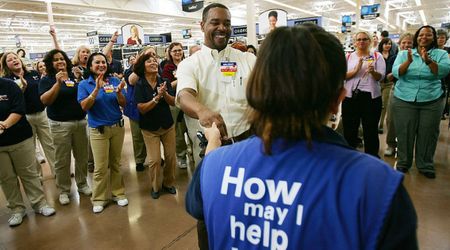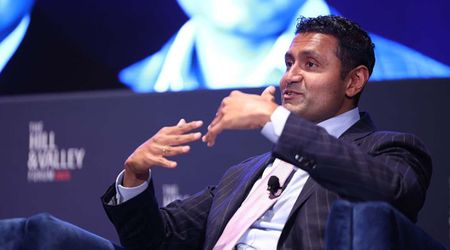Hamburger Machine Founders Face Tough Grilling on Shark Tank But Secure $1.5 Million Deal

Dan Braido, Audley Wilson and Andy Siegel's joint venture RoboBurger makes vending machines that custom-make hamburgers. They believe the vending machine is going to be the future of fast food. On the recent episode of "Shark Tank" on ABC, however, things did not go as planned for them.
Their presentation did not impress the show's investors much. They fought over how the company would earn money and had a lot to say about its goals. One of the investor judges, Kevin O'Leary, felt that the presentation lacked coherence and was disorganized. He wasn't even sure the company could turn a profit, so he chose not to make an offer at first. "How do I make money?" he asked. "The rest is irrelevant."

Turned doubts into support
O'Leary, however, had a change of heart by the end of the show. Together with Michael Rubin, the CEO of Fanatics, who was a guest judge, he extended a $1.5 million offer to the RoboBurger inventors.
The judges tested out the vending machine. It produced a burger with reheated meat, cheese, and toppings on a toasted bun in roughly four minutes. They claimed that the price per burger for them is between $5.99 and $6.99. Although the term "rethermalized" may seem elegant, Mark Cuban pointed out that it really just means "reheated." The company's CTO, Dan Braido, clarified that the pre-cooked patties are grilled in the machine to obtain a crispy outside and maintain the juicy texture of the meat.
Funding asks and predictions
The Sharks agreed that the sample burgers were delicious. Then, the founders made their big ask: they wanted a $1.5 million investment in exchange for a 5% share in the company. This meant they valued their business at $30 million even though it had not made any profit yet. "Whoa!" exclaimed several investors at once. Andy Siegel, the company's CMO explained that RoboBurger makes money by leasing the machines for $3,000 a month or selling them outright. The people who buy or lease the machines are responsible for keeping them stocked with ingredients.
RoboBurger has sold over 12,000 burgers while testing its devices for 18 months before filming. By year's end, the founders anticipated making $1.4 million in revenue, but they would still lose $700,000 total. According to the CEO of RoboBurger Audley Wilson, the company needs funding to develop its production process. Their goal was to expand and release more devices more quickly.
View this post on Instagram
Offers from Sharks
Mark Cuban observed that technology can quickly become outdated and that the robotics industry is extremely competitive. He pointed out that maintaining and manufacturing vending machines is costly, and he recommended that RoboBurger think about licensing their technology rather than concentrating on actual sites. Because he believed it was a grave error to tie the company to physical locations, Cuban chose not to invest.
Michael Rubin was also uneasy with the business plan. He doubted that enough individuals would be prepared to cover the expense of food in addition to the monthly fee. He felt there was potential in the idea, but the business model wasn't quite right yet. Rather than contributing capital to the business outright, he proposed providing a loan with interest payments and taking a stake in the company. Rubin's offer seemed excessively demanding to Barbara Corcoran, but "Mr. Wonderful," Kevin O'Leary felt it was a fair bargain. He even proposed to share the loan payment with Rubin.

Negotiations and agreements
Following some haggling, the founders of RoboBurger agreed to accept a 9% ownership in return for the financing. They were eager to collaborate with Rubin as well as O'Leary. According to Rubin, he had second thoughts since in the world of business, one must occasionally make total adjustments, even to their own decisions.






















